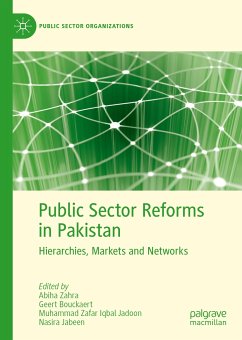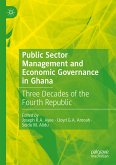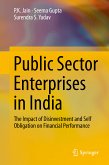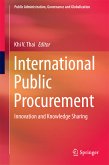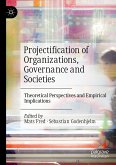¿This book provides a research-based analysis of public sector reforms in Pakistan. It offers a broad overview of reforms at different levels of government - including federal, provincial and local - and examines decentralization and devolution reforms in various policy sectors. It also reflects on market-oriented reforms and the steps taken to involve the private sector to build a better-governed public sector, and explores new trends in the public sector in the areas of digitalisation and disaster management. Bringing together young researchers, academics, and practitioners, the book sets a new milestone in the movement towards context-specific reform studies in both academia and the professional practice of public administration, particularly in South Asia.
¿Abiha Zahra is Research Fellow at the Public Governance Institute, KU Leuven, Belgium and Assistant Professor at the Department of Governance and Global Studies, Information Technology University, Lahore, Pakistan. Her research focuses on structural reforms in the state organizations of Pakistan.
Geert Bouckaert is Professor at the Public Governance Institute, KU Leuven, Belgium. His research focuses on public sector reforms in the OECD countries, and performance management.
Muhammad Zafar Iqbal Jadoon was Professor at the Institute of Administrative Sciences, University of the Punjab, Pakistan. He has taught at the University of Houston, the University of Southern California, and the University of Stirling. His research focuses on governance and management of public organizations.
Nasira Jabeen was Director of the Institute of Administrative Sciences and Human Resources Development Center, University of the Punjab, Pakistan. Her research interests include governance, public management, and human resource management.
¿Abiha Zahra is Research Fellow at the Public Governance Institute, KU Leuven, Belgium and Assistant Professor at the Department of Governance and Global Studies, Information Technology University, Lahore, Pakistan. Her research focuses on structural reforms in the state organizations of Pakistan.
Geert Bouckaert is Professor at the Public Governance Institute, KU Leuven, Belgium. His research focuses on public sector reforms in the OECD countries, and performance management.
Muhammad Zafar Iqbal Jadoon was Professor at the Institute of Administrative Sciences, University of the Punjab, Pakistan. He has taught at the University of Houston, the University of Southern California, and the University of Stirling. His research focuses on governance and management of public organizations.
Nasira Jabeen was Director of the Institute of Administrative Sciences and Human Resources Development Center, University of the Punjab, Pakistan. Her research interests include governance, public management, and human resource management.
Dieser Download kann aus rechtlichen Gründen nur mit Rechnungsadresse in A, B, BG, CY, CZ, D, DK, EW, E, FIN, F, GR, HR, H, IRL, I, LT, L, LR, M, NL, PL, P, R, S, SLO, SK ausgeliefert werden.

